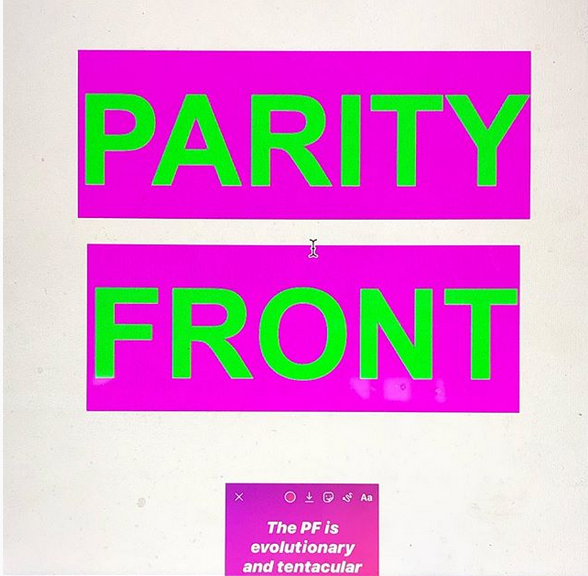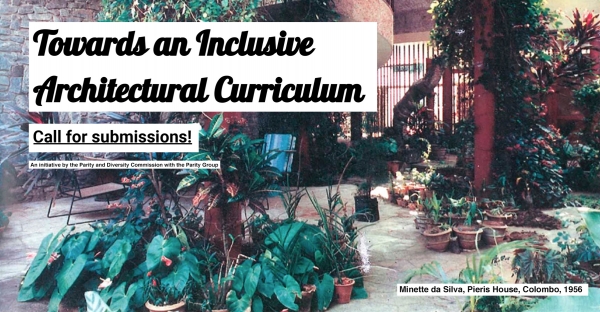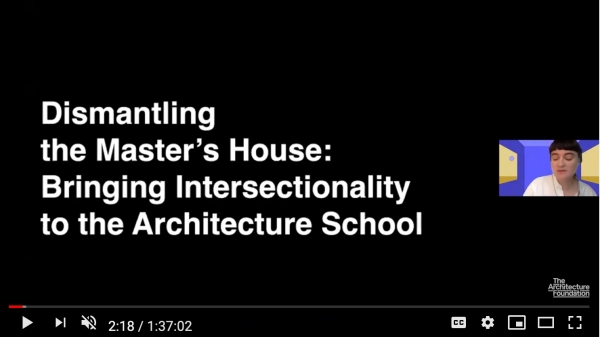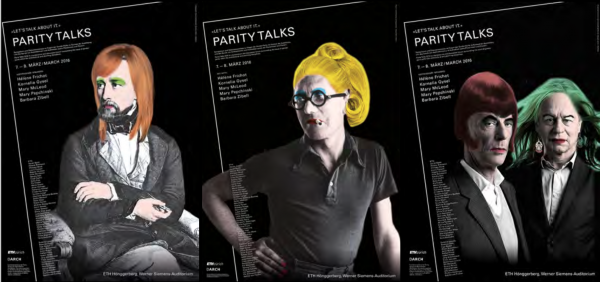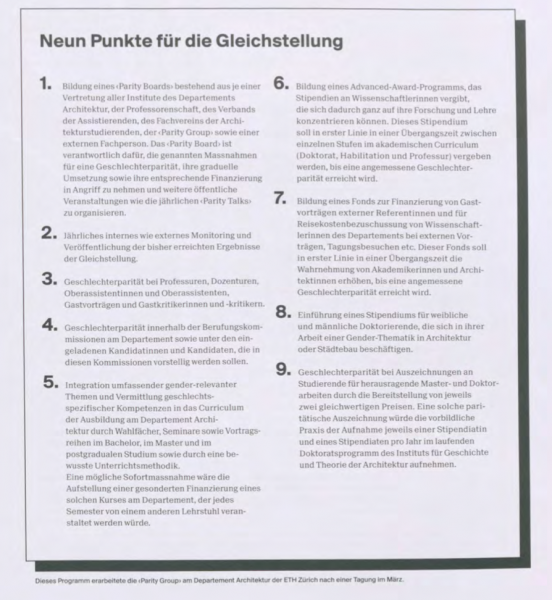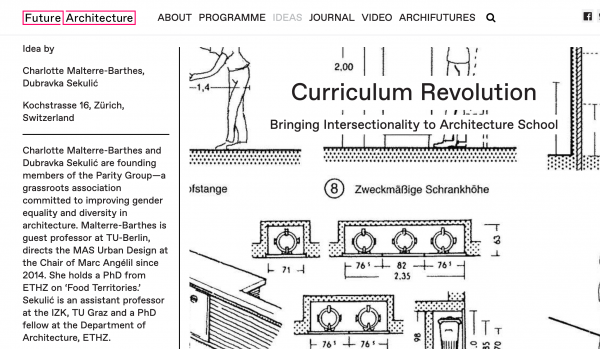Strategic Practice
Parity & Diversity Works
I maintain a militant, political, and spatial practice of feminist activities since the early 2000s—always bounded to other struggles, coined as "Parity Work." To be feminist today cannot be understood without intersectionality, the convergence of struggles against sexism, racism, capitalism, and imperialism, as conceptualized by Françoise Vergès.1
Within architecture, this approach can be best sumed by Jennifer Bloomer in Architecture and the Text. The (s)crypts of Joyce and Piranesi : "It is hard to disagree with Audre Lorde’s much-cited dictum that the Master’s tools will never dismantle the Master’s house. But people have to live in a house, not in a metaphor. Of course you use the Master’s tools if those are the only ones you can lay your hands on. Perhaps what you can do with them is to take apart that old mansion, using some of its pieces to put up a far better one where there is room for all of us."2
The output of this work has taken several forms:
- The Parity Group, a grassroots association initiated within the Architecture Department at ETH committed to improving gender equality and diversity at the school and in the profession. In that framework, and prior to leaving the Institution, the internal call 'Towards an inclusive architecture curriculum' was launched, calling for junior faculty to propose teaching subjects and formats that tackle parity (gender equality and diversity) in architectural education was launched.
- The Parity Front is a new institution dedicated to gender equality and diversity in architecture- and an offspring of the Parity Group. Deploying tentacular activism to combat injustice and inequality, the Parity Front aims at building capacity, cementing support, and formalizing knowledge around feminist activities in the educational and professional realms of architecture. Active in multiples, from mentoring to develop inclusive academic content, to questioning design processes and curricula, construction standards, and modus operandi of architecture offices, it draws from an existing network of parity group activists now distributed globally across institutions and practices. The Parity Front has been founded by Benjamin Groothuise and Charlotte Malterre-Barthes in 2020.
- The Parity Talks, a space of discussion and engagement among the Architecture Department at ETH dedicated to pursuing an agenda of diversity and parity toward change, a recurring event since 2016.
- Syndicat Culotté, a short-lived yet productive collective aimed at bringing gender discourse to the Venice Architecture Biennale with the proposal 'Into the Light. Uncovering Female Contemporary Practices.' Syndicat Culotté members were Charlotte Malterre-Barthes, Dubravka Sekulic, Harald R. Stühlinger, Lorenz Bürgi, Torsten Lange.
- In the frame of the 12th International Architecture Biennale of São Paulo on 'Everyday,' one of the 3 main topics addressed is 'Everyday Maintenance', a topic that explores notions of sustainability, durability, invisible labor and care, the maintenance of architecture and the city, a subject now gaining attention in current political spheres, in theoretical debates, and with technological research worldwide.
- 'Curriculum Revolution: Bringing Intersectionality to Architecture' (Future Architecture Laureate 2019) proposes an overall assessment of the current state of the curriculum across all architecture schools in Europe—and globally, to trigger a productive conversation to help educators in sharpening their own tools, questioning age-old references—probably breaking some idols in the way— while also developing concrete strategies for implementing positive change in architectural education everywhere. The first practical output, the Radical Room Reading Group took place during the Oslo Architecture Triennale 2019—with Dubravka Sekulic.
In June 2020, in conversation with Khensani de Klerk from intersectional collective Matri Archi, Charlotte and Dubravka discussed "Dismantling the Master's House: Bringing Intersectionality to the Architecture School" at the 100 Days of the Architecture Foundation (London).
- With Harald R. Stühlinger, the archithese publication "Architektur, die [fem.], Baukultur ist auch weiblich!" was produced in an effort to bring the discussion to the mainstream architecture scene. Published in German, the publication compiles translated texts (i.e. Beatriz Colomina's Battle Lines), original contribution on the state of gender equality in architecture, and a catalogue of women architects, a counter-argument to the too-often heard dismissive complaints on the lack of female in the profession. (2016)
Press
Hochparterre
Dezeen
ETH Video Archive
1 Françoise Vergès, “Un Féminisme Décolonial" (Paris: La Fabrique, 2019).
2 Jennifer Bloomer, “Architecture and the Text. The (s)crypts of Joyce and Piranesi " (New Haven and London: Yale University Press, 1993).
The Parity Talks have been taking place at ETH since 2016, creating a space where gender and diversity can be addressed and an agenda of change elaborated.
"What you think maintenance is; —how you feel about spending whatever parts of your life you spend on maintenance activities; —what is the relationship between maintenance and freedom", Mierle Laderman Ukeles, 1969
